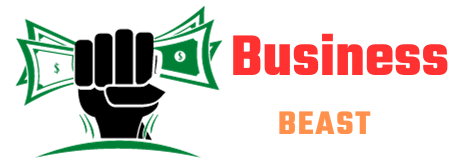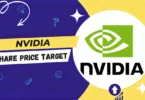During the pandemic, online grocery deliveries saw a sharp increase in popularity. The main factor propelling the online grocery delivery industry has been changing consumer habits. Nowadays, online purchases are more common among customers. This has led to the encouragement of numerous delivery companies, such as Zepto, to start their services and meet the increasing demands of their clientele by offering faster delivery. Knowing the Zepto business model can be very beneficial if you want to enter the market. Learn more by reading this article.
How Zepto business model works?
Zepto operates locations in neighborhoods with higher demand that are referred to as micro fulfillment centers or dark stores. These “dark stores” employ technology to do things like product placement. To avoid severe traffic congestion, they also map out delivery routes and choose store locations. The company is currently delivering cooking essentials, fresh produce, snacks and drinks, personal hygiene products, and cleaning supplies for the home.
About the Founders- Zepto Business Model
Zepto was founded by 19-year-old childhood friends Aadit Palicha and Kaivalya Vohra, who left Stanford University’s esteemed computer science department to launch a company back in their native India. The company was established in September 2020 and started up in April 2021.
As the CEO and Co-Founder of Zepto and KiranaKart, Aadit Palicha is no stranger to startups, having started his first at the age of 17. Palicha received his bachelor’s degree in computer science from Stanford University after earning an IB diploma in mathematics and computer science from GEMS Education. After finishing Y Combinator Grade: W21, he began working as a Project Lead at PryvaSee. He left GoPool in April 2020 to launch Zepto and KiranaKart.
Computer science graduate Kaivalya Vohra is co-founder and chief technology officer of Zepto and KiranaKart. She attended Stanford University. Vohra and Aadit went through Y Combinator, and Zepto, their company, currently employs 51 to 200 people.
Benefits of The Zepto Business Model
Contactless Approach: No-contact shopping is A major factor in businesses implementing the “dark store” strategy. Customers can buy groceries from dark stores without having to go into a physical store or speak to anyone. Customers order online, and their orders are delivered right away.
Increased Customer Base: The Dark stores increase the platforms’ customer base by putting distribution centers closer to consumers. Customers find the stores more appealing because they are always open online and accepting orders.
Inventory and Product Assortment: Zepto’s dark stores are made for simple packing and navigation so that orders can be completed swiftly and effectively. Zepto’s AI-powered tools make it simple to manage and keep an eye on inventory and product selection. Better overall product assortment and enhanced inventory control are the outcomes of this.
Efficient Distribution: Zepto can process orders more quickly and effectively thanks to its dark store. In addition to offering several distribution options, micro and cold warehouses physically deliver groceries to a specific market segment. Zepto will have greater control over the market delivery system in this way.
What is Unique About Zepto Business Model?
- Zepto’s business model revolves around giving consumers prompt service. Zepto, however, sets itself apart from its rivals with several marketing features. However, the model also accounts for these.
- Zepto is more alluring than businesses like Instacart and Amazon Fresh because it offers free shipping.
- Zepto is all about quick delivery; their website states that their average delivery time is eight minutes and forty-seven seconds. That was quite fast!
How Does Zepto Make Money? Zepto Business Model
A tiny commission is charged on each order placed through the Zepto Grocery app in India. This commission, which is between two and three percent of the entire order value, helps pay for the app’s operation expenses and guarantees that users have a satisfying experience.
Zepto’s Shareholdings- Zepto Business Model
Zepto has nine investors supporting it. Kaivalya Vohra (18.8%), Aadit Palicha (22.5%), eBooks Private Investors (10.4%), Y Combinator (5.1%), Rocket Internet (5.7%), and others (16.8%) are the company’s major shareholders. Glade Brook Capital Partners and Contrary are the most recent investors. With $200 million raised so far, the company is currently valued at $900 million.








Leave a Comment